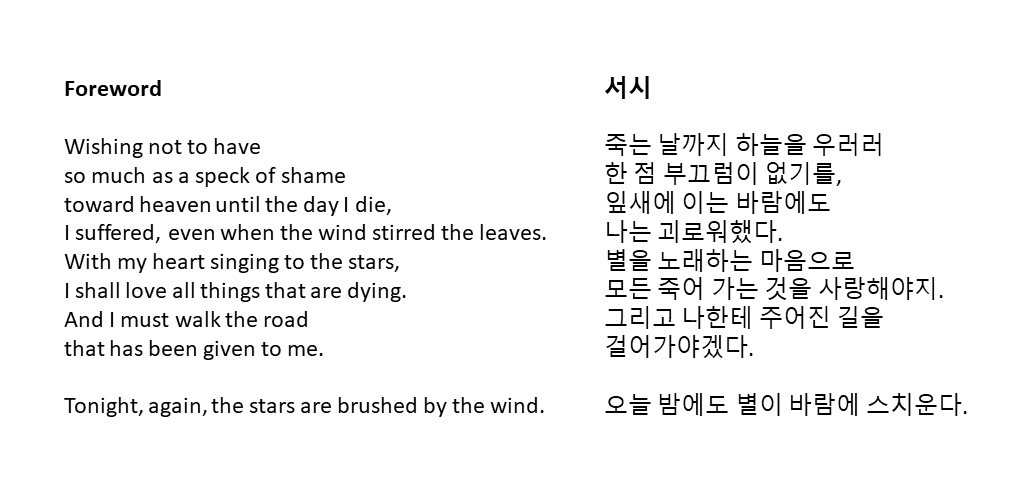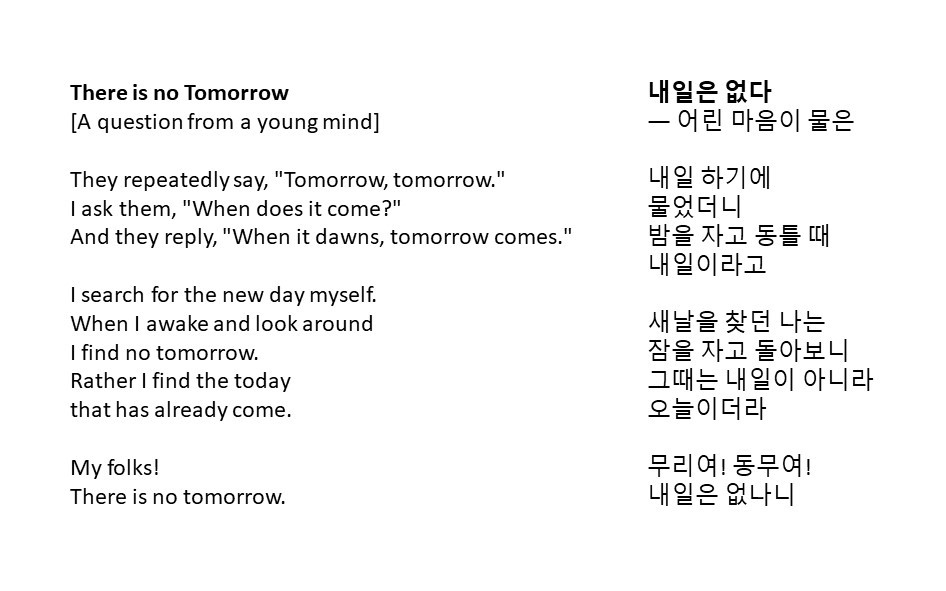- 한국어
- English
- 日本語
- 中文
- العربية
- Español
- Français
- Deutsch
- Pусский
- Tiếng Việt
- Indonesian
By Honorary Reporter Marianna Szucs from Hungary
Photo and images = Marianna Szucs
"There Is No Tomorrow" by prominent Korean poet Yun Dong-ju is an all-time favorite poem of the Korean people as well as one of mine. The link below is my recitation of the poem in Hungarian, English and Korean to mark World Poetry Day on March 21.
Born on Dec. 30, 1917, in Manchuria, China, Yun wrote lyric poetry and provided a voice for Koreans during Japanese occupation of the Korean Peninsula. His family had a strong sense of patriotism and progressive thoughts. His talent in writing shined from a young age and his professors at what is now Yonsei University in Seoul encouraged him to create his own identity by studying the Korean language, literature and history.
Yun was arrested for participating in the Korean independence movement and died in prison on Feb. 16, 1945, in Fukuoka, Japan, at age 27.
His first poetry collection, "Sky, Wind, Star and Poems," was published posthumously in 1948. His poems of resistance express purity, honesty, compassion and humanity as well as hope and desire for freedom and independence. They lack aggression and violence and convey sorrow instead of hatred.
The themes of his poetry are timeless and resonate with Koreans even today. In 2007, he was named one of Korea's favorite poets. His work "Foreword," the prologue to his collection, expresses the anguish of his intellectual life under Japanese occupation and deep self-reflection. The poem's simple language conveys tranquility and his compassion and desire for an independent Korea.

"Foreword" by Yun Dong-ju in English and Korean as translated by Literature Translation Institute of Korea
"There is No Tomorrow" uses the simplicity and purity of Korean to convey a deep symbolic message. The lines resonate with many in this unprecedented time of the pandemic due to feelings that this situation is long-lasting and hopeless.
From an optimistic perspective, however, this challenging period will end if people support each other and act in unison. Similarly, Korea regained its independence thanks to people like Yun who fought for this good cause.

"There Is No Tomorrow" by poet Yun Dong-ju in English and Korean as translated by Literature Translation Institute of Korea
enny0611@korea.kr
*This article is written by a Korea.net Honorary Reporter. Our group of Honorary Reporters are from all around the world, and they share with Korea.net their love and passion for all things Korean.